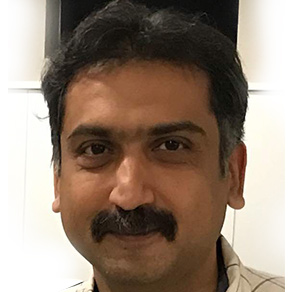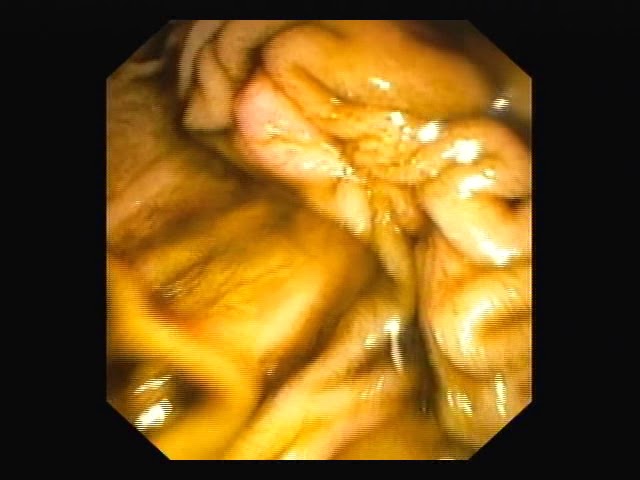Welcome to Adicura Hospital - Best Gastro Hospital in Vadodara
At Adicura Hospital, we take pride in being recognized as the leading destination for gastroenterology care in Vadodara. Our dedicated Department of Gastroenterology is committed to providing exceptional diagnostic and therapeutic services for patients suffering from disorders of the Digestive Tract, Pancreas, and Liver. With a focus on delivering high-quality care, our team of highly experienced doctors ensures that every patient receives personalized treatment and achieves the best possible outcomes.
Comprehensive Gastroenterology Care
Our department comprises a team of skilled and knowledgeable specialists who are experts in treating a wide range of gastrointestinal diseases and conditions. From disorders of the Oesophagus, Stomach, Liver, Pancreas, Biliary Tract, Small and Large Intestines, we offer comprehensive care using the latest advancements in medical technology. Our commitment to staying at the forefront of medical innovation enables us to provide safe and proven treatments that significantly improve the quality of life for our patients.
State-of-the-Art Facilities
Adicura Hospital boasts state-of-the-art facilities and advanced technologies, ensuring that our patients receive the highest standard of care. We are equipped with cutting-edge diagnostic and therapeutic equipment, enabling accurate and efficient diagnosis of gastrointestinal disorders. Our commitment to utilizing the latest advancements in medical technology reflects our dedication to delivering the best possible outcomes for our patients.
Specialized Endoscopy Services
We understand the importance of accurate diagnosis and precise treatment in gastroenterology care. That's why we offer specialized endoscopy services as part of our comprehensive treatment options. Our advanced endoscopic procedures help diagnose and simultaneously treat complex and hard-to-find problems in the Gastrointestinal Tract. With our skilled endoscopists and state-of-the-art equipment, we can effectively address a wide range of conditions, ensuring optimal patient care.
Experience Excellence in Gastroenterology Care
When you choose Adicura Hospital, you are choosing excellence in gastroenterology care. Our team of dedicated specialists, advanced facilities, and commitment to innovation ensure that you receive the highest quality care tailored to your unique needs. We are proud to be known as the best gastro hospital in Vadodara, providing exceptional care to our patients and helping them regain their health and well-being.
Contact us today to schedule a consultation with our expert gastroenterologists and experience the outstanding care that Adicura Hospital has to offer. Your journey towards a healthier digestive system starts here.
Entry level NABH accredited

SGEI accredited centre for advanced endoscopy

Gastroenterology Clinic
- Diagnostic Endoscopy
- Therapeutic Endoscopy
- Endoscopy
- Therapeutic E.R.C.P.
- Diagnostic Endosonography
- Therapeutic Endosonography
- Esophageal pH Monitoring
- Hydrogen Breath Test
- Third space endoscopy - ESD and POEM
Super Speciality Medical Gastroenterology
Team AIGHS


Frequently asked questions
Gastroenterologists are specialists that treat digestive, gastrointestinal, as well as liver disorders and diseases in both men and women. These specialists have been specifically trained to diagnose and treat all concerns related to the following organs of the body:
- Esophagus - the tube connecting the mouth and stomach
- Stomach
- Small intestine
- Colon
- Rectum
- Pancreas
- Gallbladder
- Bile ducts
- Liver
- Pharynx
- Large Intestine
- Salivary Glands
- Tongue
- Epiglottis
- Anus
Gastroenterologists also perform endoscopic procedures using specialized instruments to assess the GI tract and diagnose any problems.
Common conditions that gastroenterologists treat include:
Gastrointestinal diseases that affect your stomach and intestines, such as:
- Irritable bowel syndrome (IBS)
- Inflammatory bowel disease (IBD)
- Celiac disease
- Small intestinal bacterial overgrowth (SIBO)
- Food allergies and intolerances
- Stomach ulcers
- Diverticulitis
- Appendicitis
- Colorectal polyps
- Hemorrhoids
Esophageal disorders, such as:
- Swallowing difficulties
- Gastroesophageal reflux disease (GERD)
- Esophagitis
- Hiatal hernias
Liver diseases, such as:
- Viral hepatitis
- Toxic hepatitis
- Fatty liver disease
- Cirrhosis
Pancreatic, biliary and gallbladder diseases, such as:
- Gallstones
- Cholecystitis
- Pancreatitis
Maybe you have symptoms related to your digestive system that your general physician hasn’t been able to diagnose or treat effectively. Or maybe you already know that you have a serious gastrointestinal condition and you want expert care for it. There are many benefits to seeing a specialist with extra training in the type of condition that’s affecting you. Gastroenterologists perform more gastrointestinal research, examinations and procedures than other doctors do. As a result, they are more likely to make accurate diagnoses, identify problems sooner and treat them with fewer complications.
A gastroenterologist may begin by physically examining you. They may feel and listen to your abdominal organs from the outside, or insert a finger into your rectum. They may order follow-up tests, such as blood tests, poop tests or imaging tests like GI X-ray exams that take pictures of your organs from the outside. But when they need more information than these tests can provide, gastroenterologists are specially trained to perform endoscopic procedures. These are exams that look inside your body with an endoscope - a tiny video camera on the end of a long, thin, flexible tube they insert into your body.
Endoscopic procedures include:- Upper endoscopy or EGD: an examination of your upper GI tract, from your throat down through your stomach to your upper small intestine (duodenum).
- Enteroscopy: examination of your small intestine.
- Colonoscopy: an examination of your lower GI tract or large intestine
- Endoscopic ultrasound: an upper or lower endoscopy with an ultrasound wand attached to the endoscope, which helps to visualize your biliary system.
- ERCP: endoscopic retrograde cholangiopancreatography, an upper endoscopy that extends into your bile ducts and then takes fluoroscopic X-rays of your biliary system (video X-rays).
- Polypectomy: removal of polyps from your stomach or intestines during endoscopy.
Endoscopy exams give gastroenterologists a more detailed view inside your body to see how things are working and what might be causing your symptoms. But that’s not all - gastroenterologists can also take tissue samples and perform minor interventions with tiny tools they pass through the endoscope. This makes endoscopy an intermediate step before surgery that gastroenterologists can take to treat your condition. And it’s often enough. Gastroenterologists can relieve blockages, open up narrowed channels, stop bleeding and remove tumors through the endoscope. They can also interpret the biopsy results.
Hepatology is distinct from other specialized forms of medicine because of its focus on organs affected by hepatic diseases. Your hepatic system includes the following organs.
Liver
- Hepatology’s primary focus is on the liver.
- This essential organ is responsible for helping to digest the foods you eat as well as supporting your metabolism and getting rid of toxins.
- The liver also helps store and process fat-soluble vitamins, such as vitamin D3 and vitamin E.
Pancreas
- Located behind the stomach, the pancreas is responsible for making insulin and producing digestive enzymes.
- Acute or chronic pancreatitis can occur when the enzymes involved in digestion damage the pancreas, causing serious inflammation.
- This can also happen when the digestive enzymes made by the liver or pancreas can’t be released due to a blockage by a stone.
Gallbladder
- The gallbladder is a small organ located on the upper-right part of your stomach.
- The gallbladder is a pouch that collects the bile produced by the liver. When you eat a meal, it contracts and dumps its contents into the intestines to help with digestion.
- Gallstones can form when bile imbalances occur, thereby blocking bile flow.
Biliary tract
- Also called the biliary tree or biliary system, the biliary tract is the connection, or tract, between the liver, the gallbladder, and the pancreas.
- The biliary tract allows bile and pancreatic enzymes to get into the small intestine to help with digestion, including fat digestion.
Some types of liver disease (including non-alcohol fatty liver disease) rarely cause symptoms. For other conditions, the most common symptom is jaundice - a yellowing of your skin and the whites of your eyes. Jaundice develops when your liver can’t clear a substance called bilirubin.
Other signs of liver disease may include:
- Abdominal (belly) pain (especially on the right side)
- Bruising easily
- Changes in the color of your urine or stool
- Fatigue
- Nausea or vomiting
- Swelling in your arms or legs (edema)
If you have NAFLD without any other medical problems, you don't need any special treatment
Doctors recommend weight loss for nonalcoholic fatty liver. Weight loss can reduce fat in the liver, inflammation, and fibrosis. If your doctor thinks that a certain medicine is the cause of your NAFLD, you should stop taking that medicine. But check with your doctor before stopping the medicine. You may need to get off the medicine gradually, and you might need to switch to another medicine instead.
There are no medicines that have been approved to treat NAFLD. Studies are investigating whether a certain diabetes medicine or Vitamin E can help, but more studies are needed.
The most important part of treating alcohol-related fatty liver disease is to stop drinking alcohol. If you need help doing that, you may want to see a therapist or participate in an alcohol recovery program. There are also medicines that can help, either by reducing your cravings or making you feel sick if you drink alcohol.
Both alcoholic fatty liver disease and one type of nonalcoholic fatty liver disease (nonalcoholic steatohepatitis) can lead to cirrhosis. Doctors can treat the health problems caused by cirrhosis with medicines, operations, and other medical procedures. If the cirrhosis leads to liver failure, you may need a liver transplant.
























